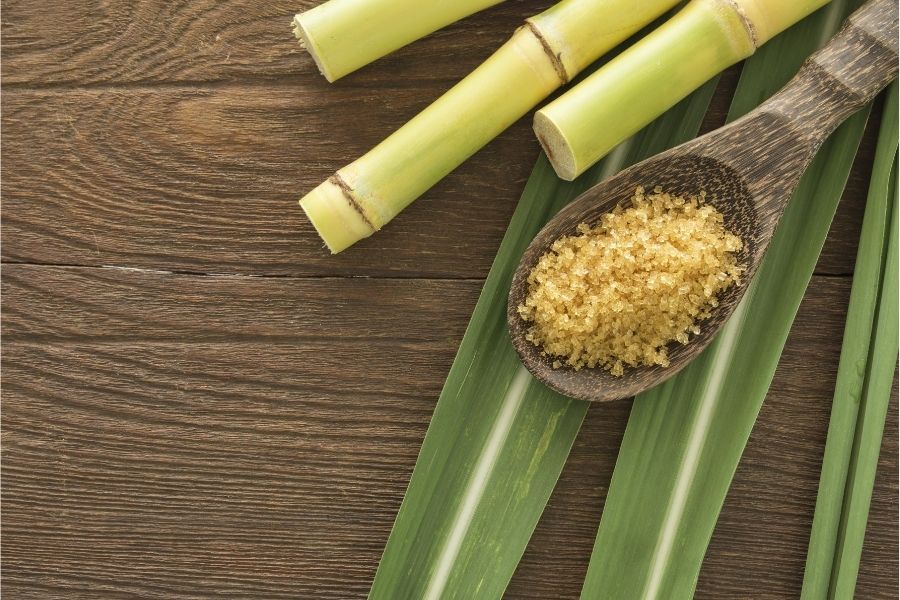The Science Behind Cane Sugar Processing: Exactly How Sweet Taste is Improved
The Science Behind Cane Sugar Processing: Exactly How Sweet Taste is Improved
Blog Article
An In-depth Overview of the Health and Economic Effects of Walking Stick Sugar Handling on Neighborhood Communities
Walking stick sugar handling plays a pivotal role fit the financial landscape of neighborhood areas, providing job opportunity and stimulating secondary sectors. However, the health implications related to high sugar intake can not be ignored, as they add to climbing prices of obesity and diabetes. This nuanced vibrant welcomes an important exam of just how areas can maximize economic gains while attending to journalism wellness challenges they face. The expedition of lasting methods and academic initiatives may just hold the key to reconciling these contrasting rate of interests. What methods might neighborhoods carry out to accomplish this equilibrium?
Economic Benefits of Walking Cane Sugar Processing
Cane sugar handling provides significant financial benefits that extend past the immediate agricultural sector. The farming and processing of sugarcane create numerous work possibilities, from farming to manufacturing and distribution. This employment generation not only sustains neighborhood economies but likewise promotes community development by providing steady revenue sources for family members.
Furthermore, the sugar sector promotes secondary companies, consisting of transportation, tools supply, and packaging solutions (Cane Sugar Processing). As these sectors grow, they add to a more durable economic structure, enhancing general area resilience. The export capacity of refined walking stick sugar further intensifies financial advantages, positioning areas as affordable players in international markets
Financial investment in contemporary processing facilities can bring about enhanced efficiency and efficiency, consequently decreasing waste and maximizing resource usage. This shift not just benefits the regional economic climate yet also supports sustainability efforts by lessening environmental influences.
Moreover, the income generated from cane sugar handling can be reinvested in local framework, education and learning, and health care, advertising holistic neighborhood growth. In general, the economic benefits of cane sugar handling are multifaceted, providing a structure for sustaining success in farming regions.
Health And Wellness Dangers Related To Sugar Usage
Extreme sugar consumption postures considerable health threats that call for serious interest. High intake of included sugars, especially from processed beverages and foods, has actually been linked to many health difficulties.
Additionally, high sugar consumption is related to heart disease. Elevated blood sugar level levels can bring about insulin resistance, a forerunner to different heart-related concerns. Additionally, sugar can have destructive effects on dental wellness, leading to dental caries and gum condition, as germs in the mouth thrive on sugar, generating acids that erode tooth enamel.
Furthermore, emerging study suggests a prospective link between high sugar intake and mental wellness conditions, such as depression and stress and anxiety. As communities face these health threats, it comes to be important to advertise awareness and encourage healthier dietary options. Resolving sugar usage is important not just for private health and wellness but additionally for the overall health of neighborhood neighborhoods, stressing the demand for thorough public wellness methods.
Ecological Influences of Sugar Production
Frequently overlooked in discussions about sugar's implications is the considerable ecological influence of sugar production. The cultivation of sugarcane commonly demands considerable land use, causing logging, loss of biodiversity, and interruption of regional ecological communities. The conversion of woodlands and marshes into sugar ranches can lead to habitat destruction, threatening countless varieties and changing environmental balance.
Furthermore, sugar production is resource-intensive, consuming substantial quantities of water for irrigation. This find more info can result in deficiency of regional water resources, adversely impacting both agricultural techniques and area access to clean water. In addition, making use of chemical plant foods and pesticides in sugarcane farming can contribute to dirt destruction and water air pollution, as drainage from these chemicals gets in neighboring rivers and lakes, affecting marine life and human wellness.
The ecological impact expands to the processing stage, where power consumption and waste generation additional intensify environmental issues. Air contamination from melting sugarcane fields, in addition to greenhouse gas emissions, add to environment change. Thus, the environmental effects of sugar production warrant serious factor to consider, urging stakeholders to take on more sustainable techniques to alleviate these damaging effects on regional environments and areas.
Task Creation and Community Growth
The environmental challenges postured by sugar production are frequently counterbalanced by its capacity for financial advantages, particularly in task production and neighborhood growth. The walking stick sugar market works as a significant source of employment in numerous country locations, providing tasks across different skill degrees, from agricultural labor to handling and distribution roles. This employment not only supports private families but also adds to the total financial vigor of regional communities.
Moreover, the facility of sugar processing centers stimulates ancillary organizations, such as transport solutions, tools supply, and maintenance carriers. As these businesses thrive, they create additional jobs and reinforce regional economies. The income created from the sugar sector likewise leads to increased tax profits, which can be reinvested right into social work such as framework, education, and health care advancement.
In addition, the sugar market typically participates in area advancement campaigns, such as sustaining local colleges and health and wellness programs, thus boosting the lifestyle for residents. By cultivating solid community connections and promoting financial growth, the cane sugar handling industry plays an important role in uplifting neighborhood populations, making it a crucial part of sustainable growth approaches in sugar-producing regions.
Harmonizing Wellness and Economic Growth
In navigating the intricacies of walking stick sugar handling, an important challenge depends on stabilizing health factors to consider with financial development. The sugar sector significantly adds to local economic situations by generating work, stimulating related markets, and raising tax obligation incomes. Nevertheless, the wellness effects connected with extreme sugar intake can result linked here in persistent diseases such as excessive weight, diabetes mellitus, and cardiovascular issues, which can concern public wellness systems and lessen workforce performance.

Moreover, regulative structures can play a crucial role in assisting industry practices in the direction of more health-conscious and lasting strategies. By fostering collaboration between government bodies, health and wellness companies, and the sugar market, areas can navigate the dichotomy of wellness and financial development, making certain that the benefits of walking stick sugar processing are equitably shared while focusing on public health.
Verdict
In final thought, the processing of walking stick sugar provides both significant economic benefits and notable wellness dangers for local neighborhoods. While it promotes work production and stimulates regional growth, the associated health concerns, specifically pertaining to excessive weight and diabetes mellitus, demand a mindful harmonizing act. By advertising liable usage and investing in community education and learning and lasting methods, it is possible to take full advantage of economic benefits while decreasing damaging health and wellness impacts, thus guaranteeing a healthier future for regional populations.
Additionally, sugar can have destructive impacts on oral wellness, resulting in tooth cavities and gum disease, as microorganisms in the mouth grow on sugar, generating acids that erode tooth enamel.
Resolving sugar consumption is crucial not just for specific wellness however additionally for the general well-being of local areas, highlighting the demand for thorough public health approaches.
Frequently ignored in discussions about sugar's implications is the substantial environmental effect of sugar manufacturing. The health and wellness effects associated with too much sugar consumption can lead to persistent illness such as weight problems, diabetes mellitus, and cardio problems, which can concern public health systems and decrease workforce productivity.

Report this page